
Sebastien Peyrouse, speyrouse@gwu.edu – Director of the Central Asia Program and a Research Professor in the Institute for European, Russian and Eurasian Studies at The George Washington University.
Sebastien Peyrouse, PhD, is also a EUCAM (Europe-Central Asia Monitoring) associate researcher and member of Crude Accountability’s board of directors. He worked five years in Central Asia, at the French Institute for Central Asian Studies in Tashkent, Uzbekistan (1998-2000, 2002-2005), and was Research Fellow at Woodrow Wilson International Center for Scholars, Washington D.C. (October 2006-June 2007), and at the Central Asia and Caucasus Institute (SAIS, Johns Hopkins University (2007-2010). His main areas of expertise are political systems in Central Asia, economic and social issues, Islam and religious minorities, and Central Asia’s geopolitical positioning toward China, India and South Asia. He has authored or co-authored several books on Central Asia and published many articles, including in Europe Asia Studies; Nationalities Papers; China Perspectives; Religion, State & Society; and Journal of Church and State.

Marlene Laruelle, laruelle@gwu.edu – a Research Professor of International Affairs and Political Science at the Institute for European, Russian and Eurasian Studies (IERES), Director of the Illiberalism Studies Program, and Co-Director of PONARS Eurasia.
Professor Laruelle works on the rise of populist and illiberal movements in post-Soviet Eurasia, Europe and the US. Trained in political philosophy, she explores how nationalism and conservative values are becoming mainstream in different cultural contexts. She focuses on Russia’s ideological landscape and its outreach abroad. She has been also working on Central Asia’s nationhood and regional environment, as well as on Russia’s Arctic policy.
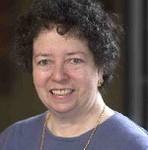 Muriel Atkin, matkin@gwu.edu – Professor at George Washington University.
Muriel Atkin, matkin@gwu.edu – Professor at George Washington University.
Muriel Atkin is working on a study of the roles of Islam and nationalism in the civil war in Tajikistan, a Central Asian republic. Her other research interests include Russian policy towards Muslims at home and abroad, and Russian/Soviet relations with Iran. She teaches undergraduate courses on Russian history, Iran, and Central Asia.
 Henry E. Hale, hhale@gwu.edu – Professor of Political Science and International Affairs, and Co-Director of the Program on New Approaches to Research and Security in Eurasia (PONARS Eurasia) at George Washington University.
Henry E. Hale, hhale@gwu.edu – Professor of Political Science and International Affairs, and Co-Director of the Program on New Approaches to Research and Security in Eurasia (PONARS Eurasia) at George Washington University.
He has spent extensive time conducting field research in the countries of post-Soviet Eurasia and works primarily on issues related to identity politics, political regimes, and public opinion. His work has won two prizes from the American Political Science Association, and he is the author of the books Patronal Politics (2015), Foundations of Ethnic Politics (2008), and Why Not Parties in Russia (2006), all with Cambridge University Press.
Prior to joining GW, he taught at Indiana University (2000-2005), the European University at St. Petersburg, Russia (1999), and the Fletcher School of Law and Diplomacy (1997-98). He is also chair of the editorial board of Demokratizatsiya: The Journal of Post-Soviet Democratization.
 Benjamin Hopkins, bhopkins@gwu.edu – Director, Sigur Center for Asian Studies; Associate Professor of History and International Affairs
Benjamin Hopkins, bhopkins@gwu.edu – Director, Sigur Center for Asian Studies; Associate Professor of History and International Affairs
Professor Hopkins is a historian of modern South Asia, specializing in the history of Afghanistan and British imperialism on the Indian subcontinent. He has authored, co-authored, and co-edited numerous books on the region, including The Making of Modern Afghanistan, Fragments of the Afghan Frontier, and Beyond Swat: History, Society and Economy along the Afghanistan-Pakistan Frontier. His new book, Ruling the Savage Periphery: Frontier Governance and the Making of the Modern State, presents a global history of how the limits of today’s state-based political order were organized in the late nineteenth century, with lasting effects to the present day. He is currently working on A Concise History of Afghanistan for Cambridge University Press, as well as a manuscript about the continuing war in Afghanistan provisionally entitled, The War that Destroyed America.
Professor Hopkins’ research has been funded by Trinity College, Cambridge, the Nuffield Foundation (UK), the British Academy, the American Institute of Iranian Studies, as well as the Leverhulme Trust. He has received fellowships from the Council on Foreign Relations, the National University of Singapore, the School for Advanced Research in Santa Fe, and the Woodrow Wilson Center for International Scholars in Washington DC. Writing for the public, Professor Hopkins has been featured in The New York Times, The National Interest, and the BBC. He regularly teaches courses on South Asian history, the geopolitics of South and Central Asia, as well as World history and the legacies of violence and memory in Asia. Professor Hopkins has directed the Sigur Center for Asian Studies since 2016.
 Sean Roberts, seanrr@gwu.edu – Associate Professor in the Practice of International Affairs and Director of the International Development Studies MA program at George Washington University’s Elliott School of International Affairs.
Sean Roberts, seanrr@gwu.edu – Associate Professor in the Practice of International Affairs and Director of the International Development Studies MA program at George Washington University’s Elliott School of International Affairs.
Roberts is an anthropologist with regional expertise in Central Asia, where he also has also done extensive applied development work on issues related to civil society, governance, and human rights. Much of his academic work has focused on the Uyghur people in the People’s Republic of China’s Xinjiang Uyghur Autonomous Region, as well as in Central Asia and Turkey. His first book, The War on the Uyghurs: China’s Internal Campaign against a Muslim Minority (Princeton University Press, September 2020) draws on his field research and in-depth interviews with Uyghurs. Roberts also writes on issues related to politics and development in the broader Central Asian region. He frequently comments for media outlets on current events both in Central Asia and in the Uyghur region of China. Roberts earned his Ph.D. from the University of Southern California. @RobertsReport
 Peter Rollberg, rgpeter@gwu.edu – Associate Dean for Faculty Affairs and Research Initiatives at George Washington University.
Peter Rollberg, rgpeter@gwu.edu – Associate Dean for Faculty Affairs and Research Initiatives at George Washington University.
Peter Rollberg joined the George Washington University in 1991. He grew up in Halberstadt, Germany, and in Moscow. In 1988, he earned his Ph.D. in Russian Literature from the University of Leipzig. In 1990-1991, he taught at Duke University. Among his English, German, and Russian publications are articles on Aleksandr Pushkin, Feodor Dostoevsky, Lev Tolstoy, Vladimir Nabokov, Mikhail Bulgakov, Vasilii Grossman, Mikhail Prishvin, Vasilii Belov, Vladimir Makanin, and Anatolii Kim. He also wrote about aspects of Russian and German cinema and media and was the editor of The Modern Encyclopedia of East Slavic, Baltic, and Eurasian Literatures (Academic International Press, 1996). In 1997, he published a Festschrift in honor of Charles Moser, And Meaning for a Life Entire (Slavica). He is the author of the Historical Dictionary of Russian and Soviet Cinema (Scarecrow Press, 2008), the second, enlarged edition of which was published in 2016 (Rowman and Littlefield). In 2014, he edited “Media in Eurasia” – a special issue of Demokratizatsiya: The Journal of Post- Soviet Democratization, and in 2015, with Marlène Laruelle, “The Media Landscape in Central Asia,” in the same journal. In 2018, Rollberg published Mass Media in the Post-Soviet World (ibidem/Columbia University Press, coedited with Marlene Laruelle). Peter Rollberg was director of the GWU Honors Program in 2001-2003, director of the GWU Film Studies Program in 2000-2010, Chair of the German and Slavic Department in 1999- 2001, and Chair of the Department of Romance, German, and Slavic Languages and Literatures in 2006-2009. In 2010-2019, Rollberg was the director of the M.A. Program in European and Eurasian Studies. In 2019, he was appointed Associate Dean for Faculty Affairs and Research Initiatives in the Elliott School of International Affairs. In 2012-2019, Rollberg served as Director of the Institute for European, Russian, and Eurasian Studies. He won a Bender Teaching Award in 1999 and the Trachtenberg Teaching Award in 2001.
 Eric Schluessel, schluessel@gwu.edu – Assistant Professor of History at George Washington University.
Eric Schluessel, schluessel@gwu.edu – Assistant Professor of History at George Washington University.
Eric Schluessel is a social historian of China and Central Asia, and his work focuses on Xinjiang (East Turkestan) in the nineteenth and twentieth centuries. Land of Strangers, his first monograph, uses local archival and manuscript sources in Chinese and Chaghatay Turkic to explore the ramifications of a project undertaken in the last decades of the Qing empire to transform Xinjiang’s Turkic-speaking Muslims into Chinese-speaking Confucians. Schluessel’s current project, Exiled Gods, delves into Han Chinese settler culture and religion to illuminate the history of a diasporic community of demobilized soldiers and their descendants that spanned the Qing empire.
Thanks to grants from the National Endowment for the Humanities and the American Council of Learned Societies, Schluessel is also completing a translation and critical edition of the Tārīkh-i Ḥamīdī of Mullah Mūsa Sayrāmī, which is an important Chaghatay-language chronicle of nineteenth-century Xinjiang. Ongoing research builds off of this and other manuscript, documentary, and memoir sources to reconstruct an economic history of Xinjiang from below.
Schluessel previously taught at the University of Montana in Missoula and spent the 2018–2019 academic year as a Mellow Fellow at the Institute for Advanced Study in Princeton, NJ.
 Snezhana Atanova, snej.atanova@gmail.com – Assistant Professor at Nazarbayev University.
Snezhana Atanova, snej.atanova@gmail.com – Assistant Professor at Nazarbayev University.
Dr. Snezhanna Atanova received her Ph.D. in 2020 from the National Institute of Oriental Languages and Civilizations (INALCO/ Sorbonne Paris Cité, Paris, France). Dr. Atanova studies different aspects of material culture and cultural heritage in Central Asia. Much of her research centers around the role that material culture plays in the formation of communities, and the relationship between religion/ideology and material culture. Among her additional interests are French-speaking travelers’ accounts on Central Asia of the 19th – early 20th centuries, as they contain ethnographical data about the region.
Since 2021 Dr. Atanova has been an associate researcher at the French Institute for Central Asian Studies (IFEAC). Her research was supported by Carnegie Research Fellowship Program in 2016-2017, AMI IFEAC Fellowship in 2018, and Central Asia-Azerbaijan Program Fellowship in 2019.
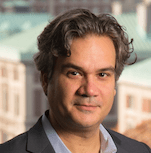 Alexander Cooley, acooley@barnard.edu – Claire Tow Professor of Political Science at Barnard College and Director of Columbia University’s Harriman Institute (2016-present).
Alexander Cooley, acooley@barnard.edu – Claire Tow Professor of Political Science at Barnard College and Director of Columbia University’s Harriman Institute (2016-present).
Cooley’s research examines how external actors—including emerging powers, international organizations, multinational companies, NGOs, and Western enablers of grand corruption—have influenced the development, governance and sovereignty of the former Soviet states, with a focus on Central Asia and the Caucasus. He is the author and/or editor of seven academic books including, Dictators without Borders: Power and Money in Central Asia (Yale University Press 2017), co-authored with John Heathershaw, and most recently, Exit from Hegemony: the Unravelling of the American Global Order (Oxford University Press, 2020), co-authored with Daniel Nexon. In addition to his academic research, Cooley serves on several international advisory boards engaged with the region and has testified for the United States Congress and Helsinki Commission. His opinion pieces have appeared in the New York Times, Foreign Policy and Foreign Affairs and his research has been supported by fellowships and grants from the Open Society Foundations, Carnegie Corporation, and the German Marshall Fund of the United States, among others. Cooley earned both his MA and Ph.D. from Columbia University.
 Artemy M. Kalinovsky, a.m.kalinovsky@uva.nl – Professor of Integrative Knowledge in Russia, Soviet, and Post-Soviet studies at Temple University.
Artemy M. Kalinovsky, a.m.kalinovsky@uva.nl – Professor of Integrative Knowledge in Russia, Soviet, and Post-Soviet studies at Temple University.
Artemy earned his BA from the George Washington University and his MA and PhD from the London School of Economics, after which he taught at the University of Amsterdam. His interests include Soviet and Russian Foreign Policy, modern Central Asia, and the history of development and welfare. He is an editor of the Central Asian Memoirs of the Soviet Era collection, which is sponsored by the Central Asia Program.
Artemy is the author of A Long Goodbye: The Soviet Withdrawal from Afghanistan (Harvard University Press, 2011), and, Laboratory of Socialist Development: Cold War Politics and Decolonization in Soviet Tajikistan (Cornell University Press, 2018), which won the Davis Center and Hewett prizes from the Association of Slavic, East European, and Eurasian Studies. He is also the editor or co-editor of a number of edited volumes dealing with Soviet history, the Cold War, and globalization, including Reassessing Orientalism: Interlocking Orientologies in the Cold War era, with Michael Kemper (Routledge, 2015) and Alternative Globalizations: Eastern Europe and the Postcolonial World, with Steffi Marung and James Mark (Indiana University Press, 2020). Artemy was recently the recipient of a European Research Council Consolidator grant for a project that studies the legacies of socialist development in contemporary Central Asia to examine entanglements between socialist and capitalist development approaches in the late 20th century. His writing has also appeared in Foreign Affairs, the Washington Post, Foreign Policy, and the New York Times.
 Liliya Karimova, liliyakarimova@gmail.com – Assistant Professor, Northern Virginia Community College.
Liliya Karimova, liliyakarimova@gmail.com – Assistant Professor, Northern Virginia Community College.
Liliya received her Ph.D. in Communication from the University of Massachusetts-Amherst. Prior to joining NVCC, she taught at George Washington University’ Columbian College of Arts and Sciences and coordinated the Central Asia Program at Elliott School of International Affairs. She has held research fellowships at the Kennan Institute (Woodrow Wilson International Center for Scholars), Kluge Center (the Library of Congress), and IERES (GWU). Liliya’s research focuses on Islam, identity, discourse, gender, and social change in Tatarstan, Russia. Her research appeared in The Journal of Intercultural Communication Research; Nova Religio: the Journal of Alternative and Emergent Religions; Central Asian Survey; Central Asian Affairs; Anthropology and Archaeology of Eurasia; and Religion, State, and Society.
 Nargis Kassenova, nargis@kimep.kz – Senior Fellow, Davis Center for Russian and Eurasian Studies, Harvard University.
Nargis Kassenova, nargis@kimep.kz – Senior Fellow, Davis Center for Russian and Eurasian Studies, Harvard University.
Nargis Kassenova is a Senior Fellow at the Davis Center for Russian and Eurasian Studies of Harvard University, and Associate Professor at the Department of International Relations and Regional Studies of KIMEP University. Her areas of research include Central Asian politics and security, Eurasian geopolitics, Kazakhstan’s foreign policy, religion and politics in Central Asia, and history of state-building in Central Asia.
 Erica Marat, erica.marat@gmail.com – Associate Professor and Chair of the Regional and Analytical Studies Department at the College of International Security Affairs (CISA) in the National Defense University. She has previously directed the Homeland Defense Fellowship Program at CISA.
Erica Marat, erica.marat@gmail.com – Associate Professor and Chair of the Regional and Analytical Studies Department at the College of International Security Affairs (CISA) in the National Defense University. She has previously directed the Homeland Defense Fellowship Program at CISA.
Dr. Marat’s research focuses on violence, mobilization and security institutions in Eurasia, India, and Mexico. She has authored three books, including most recently The Politics of Police Reform: Society against the State in Post-Soviet Countries (Oxford University Press 2018). Her articles appeared in Foreign Affairs, Washington Post, Foreign Policy, Eurasanet, and Open Democracy.
Dr. Marat is currently focused on completing a book on mobilization against violence in India and Mexico. She is also engaged in a research project on China’s and Russia’s provision of public services for illiberal governances in 15 countries across five continents. The projects are funded by the Minerva DECUR grant.
At CISA, Dr. Marat teaches courses on policy analysis and critical thinking, politics and security in Eurasia, and terrorism & crime. Before joining NDU, Dr. Marat was a visiting scholar at the Kennan Institute of the Woodrow Wilson Center. She has also worked as an editor at the Russian Service at Voice of America and as a research fellow at the Central Asian – South Caucasus Institute at the John Hopkins University and Uppsala University.

Eric McGlinchey, emcglinc@gmu.edu – Associate Professor of Politics and Government at George Mason University’s Schar School of Policy and Government.
McGlinchey received his PhD from Princeton University and is the author of Chaos, Violence, Dynasty: Politics and Islam in Central Asia (2011). He is Principal Investigator for the study, Russian, Chinese, Militant, and Ideologically Extremist Messaging Effects on United States Favorability Perceptions in Central Asia (Minerva Research Initiative, January 2017 – **December 2019**). Grants from the National Science Foundation, the National Council for Eurasian and East European Research, the International Research & Exchanges Board, the Social Science Research Council, and the US Department of State have also funded his research. McGlinchey has published widely in academic journals and the popular press and has contributed to multiple US government studies, including his 2007 USAID funded Study of Political Party Assistance in Eastern Europe and Eurasia as well as three 2013 USAID funded risk assessments on Violent Extremism and Insurgency in Kyrgyzstan, Kazakhstan, and Central Asia.

Marintha Miles, mmiles8@gmu.edu – Affiliate Faculty, Institute for Immigration Research, George Mason University.
Dr. Miles’ current research focuses on Central Asian transnational and diaspora networks and new Russian speaking migration mobilities. She teaches Central Asian Politics at Elliott School of International Affairs.
Dr. Miles’ articles have been published in Demokratizatsiya: The Journal of Post-Soviet Democratization, Central Asia Program Policy Briefs, and in Central Asian Affairs. She has been an invited speaker New York University, The George Washington University Elliot School of International Relations, Harvard University, and government organizations. She previously spearheaded the GWU Gelman Library Global Resource Center’s web-archiving of digital material from across Central Asia. She was previously Deputy Director and coordinator of the Central Asia Program.

Malcolm Russell-Einhorn, mrussellein@gwu.edu – Research Professor of International Affairs at the Elliott School of International Affairs at George Washington University.
Malcolm Russell-Einhorn is a comparative law and public administration specialist with over two decades of international development consulting, management, and teaching experience, including significant work in legal and regulatory reform, access to justice, anti-corruption analysis, local government capacity-building, and legislative strengthening. His work has focused on numerous countries in Eastern Europe and Central Asia, as well as several East African nations. He has extensive experience consulting with the Center on Democracy, Rights, and Governance at the US Agency for International Development and conducting assessments, political economy analyses, and project evaluations for USAID, the US Department of State, the Asian Development Bank, The World Bank, and the US Department of Justice. He previously served as Director of the Center for International Development at the State University of New York at Albany and as Associate Director of the IRIS Center at the University of Maryland. Immediately prior to joining the Elliott School, he was a Lecturer at the University of Massachusetts Boston and a Senior Fellow there at the Center for Peace, Democracy and Development. Prior to entering the international development field, he practiced law in Washington DC and Boston, Massachusetts and also served in the Massachusetts Attorney General’s Office. The author of several articles and book chapters, he has also taught courses on comparative law and comparative public administration at Tufts University’s Fletcher School, SUNY Albany’s Rockefeller College of Public Affairs and Policy, Brandeis University’s Heller School for Social Policy and Management and the McCormack School of Policy and Global Studies at the University of Massachusetts Boston. He has BA (history) and MA (Russian Studies) degrees from Yale University and a JD from Harvard Law School.
 Noah Tucker, noah.d.tucker@gmail.com – Senior Fellow at the Atlantic Council Eurasia Center and program associate at George Washington University’s Elliot School of International Affairs Central Asia Program.
Noah Tucker, noah.d.tucker@gmail.com – Senior Fellow at the Atlantic Council Eurasia Center and program associate at George Washington University’s Elliot School of International Affairs Central Asia Program.
Noah was previously Executive Editor for the Not in Our Name film and television series, the first region-wide project designed to prevent violent extremism in Central Asia through community dialogues in areas most directly affected by recruiting to Syria. He has worked as a consultant on multiple collaborative projects for government, academic and international organizations to identify the way social and religious groups affect political and security outcomes in Central Asia and Afghanistan. Recent publications include “Terrorism without a God: Reconsidering Radicalization and Counter-Radicalization Models in Central Asia” (GWU Central Asia Program September 2019). Noah has worked on Central Asian issues since 2002—specializing in religion, national identity, ethnic conflict and social media—and received an MA from Harvard in Russian, East European and Central Asian Studies in 2008. He has spent some six years living and working in in the region, primarily in Uzbekistan and Kyrgyzstan and speaks Russian and Uzbek. Noah most recently conducted fieldwork on reintegration efforts for returnees from the Syrian conflict in Uzbekistan in March-May 2020.
 Garrett Wolf, garrettc.wolf@gmail.com – PhD Candidate – Associate of the Central Asia Program. Garrett is currently a PhD Candidate in the Manchester Architecture Research Centre at the University of Manchester.
Garrett Wolf, garrettc.wolf@gmail.com – PhD Candidate – Associate of the Central Asia Program. Garrett is currently a PhD Candidate in the Manchester Architecture Research Centre at the University of Manchester.
Garrett is an urbanist, designer, and scholar. His current work focuses on using architectural research to reconceptualize the transition from the Soviet period to the post-Soviet period in Uzbekistan, and understand processes and changes in urban development in both the socialist and post-socialist city. Garrett has conducted ethnographic and archival research on Soviet and post-Soviet architecture, urbanism, and everyday life in Tashkent, Uzbekistan as well as teaching architecture there. He has more than ten years of professional experience in design, urban development, and consulting. Garrett is also the founder of the Central Asia Urban Forum, which promotes sustainable urban development strategies in the region, and helps build capacity of local designers, planners, politicians, and educators. Garrett holds a BLA in Landscape Architecture, a BA in Geography, and an MA in Geography from Louisiana State University, and a Certificate in Russian from Novosibirsk State Technical University.
 Mélanie Sadozaï, melanie.sadozai@inalco.fr – PhD Candidate – Associate of the Central Asia Program.
Mélanie Sadozaï, melanie.sadozai@inalco.fr – PhD Candidate – Associate of the Central Asia Program.
Mélanie Sadozaï is a PhD candidate in International Relations at the Center for Europe and Eurasian Studies (CREE) at the National Institute of Oriental Languages and Civilizations (INALCO/Sorbonne Paris Cité) in Paris, France, and a Visiting Scholar at the Sigur Center for Asian Studies at the George Washington University. Prior to becoming a doctoral student, Mélanie graduated with a B.A. in Persian linguistics and civilizations from INALCO, and two M.A. in International Relations and War Studies from Université Paris 1 Panthéon Sorbonne. Her research is based on long-time fieldwork and focuses on cross-border activities as resources in the remote areas of Tajikistan and Afghanistan in the Pamirs. Through an empirically oriented methodology, she challenges the widespread perception of the Southern border of Tajikistan which associates it with images of violence and danger. Since 2018, Mélanie has presented her research during academic events in France, Ukraine, Kirghizstan and the United States. She has namely published in the Journal of Borderlands Studies and the Journal of Power Institutions in Post-Soviet Societies.

Sebastien Peyrouse – Director of Central Asia Program. Sebastien Peyrouse was a doctoral and postdoctoral Fellow at the French Institute for Central Asia Studies in Tashkent (1998-2000 and 2002-2005), a Research Fellow at the Slavic Research Center, Hokkaido University in Sapporo (2006), and a Research Fellow at the Woodrow Wilson International Center for Scholars in Washington (2006-2007). In 2008-2012, he was a Senior Research Fellow with the Central Asia-Caucasus Institute & Silk Road Studies Program (SAIS, Johns Hopkins University, Washington D.C.) and with the Institute for Security and Development Policy (Stockholm). He is an Associated Scholar with the Institute for International and Strategic Relations (IRIS, Paris), and with the Fundación para las Relaciones Internacionales y el Diálogo Exterior (FRIDE, Madrid) and a member of the Brussels-based EUCAM (Europe-Central Asia Monitoring).
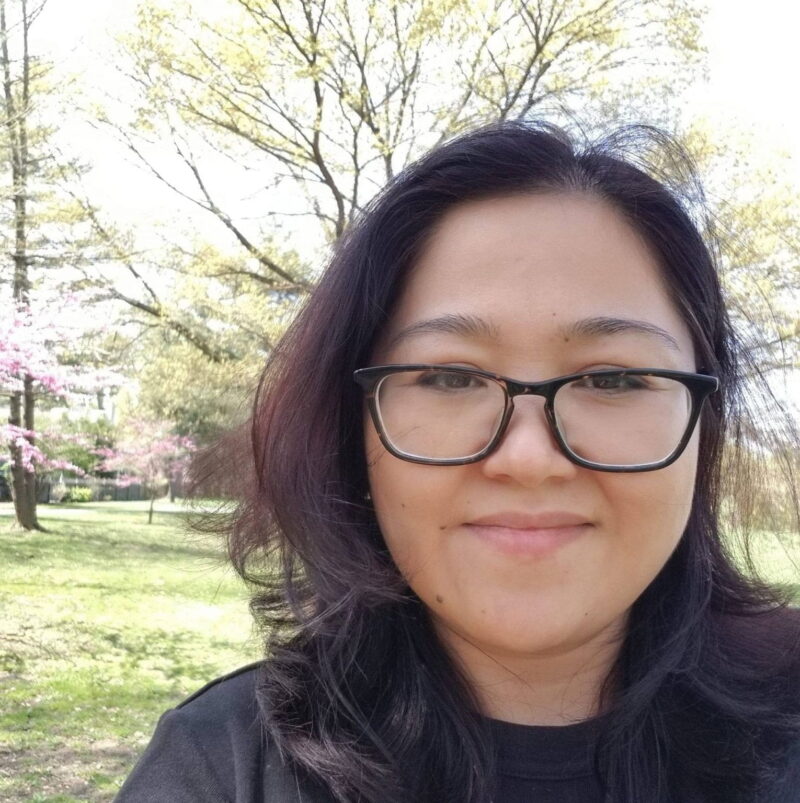
Aitolkyn Kourmanova – Senior Editor of Central Asian Analytical Network (CAAN), Voices on Central Asia and UZ Analytics. She is an expert on economic policy in Central Asia, and authored several studies on regional economic cooperation, trade, commodity and financial markets. She also has an extensive media management experience. She has a bachelor’s degree in international relations from Al-Farabi Kazakh National University and Executive MBA from HEC Paris. At Central Asia Program, she manages online content, media, and communications.
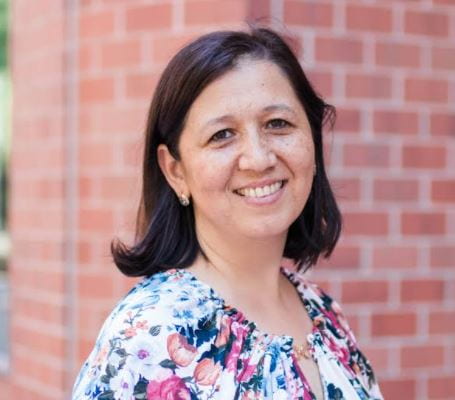
Marhabo Rakhimova – Program Associate, Central Asia Program. Marhabo Rakhimova has a background in non-government organizations as an experienced international program coordinator. With a focus on Central Asian programs, she has coordinated projects aimed at enhancing the effectiveness of civil society organizations in various fields (health, youth, and women empowerment) by integrating transparency, social inclusion, participatory approaches, and accountability in those sectors. She earned her Master’s Degree in International Relations from the Maxwell School of Public Administration and International Affairs at Syracuse University.
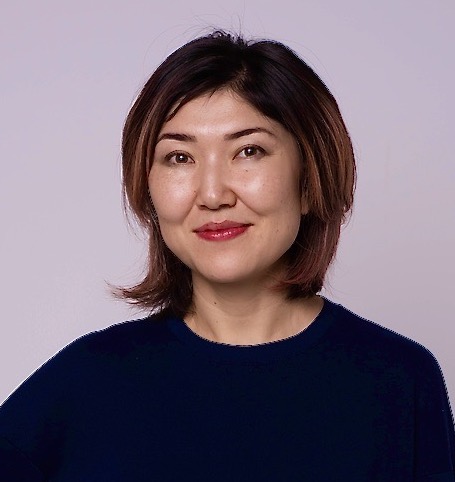
Karlygash Kabatova – Program Associate, Central Asia Program. Karlygash Kabatova is a researcher and advocate for youth sexual and reproductive health and rights (SRHR) and gender education. Since 2017 Karlygash has been raising awareness of young people and parents in Kazakhstan about SRHR through her projects Uyatemes.kz, Aspan chatbot and publications in popular media. Independently and as a project coordinator at PaperLab Research Center (Kazakhstan), Karlygash studied SRHR, gender-based violence, equity in access to education, and civil activism. She also worked as a student recruiter at the University of Central Asia and a data analyst at the Natalia Estemirova Documentation Center (Norwegian-Helsinki Committee). Karlygash holds a Master of Arts degree in Politics and Security (Central Asia) from the OSCE Academy in Bishkek. She is a graduate of the Soros Foundation-Kazakhstan’s Public Policy Initiative Fellowship Program for young researchers and the Bolashak Scholarship Program.

